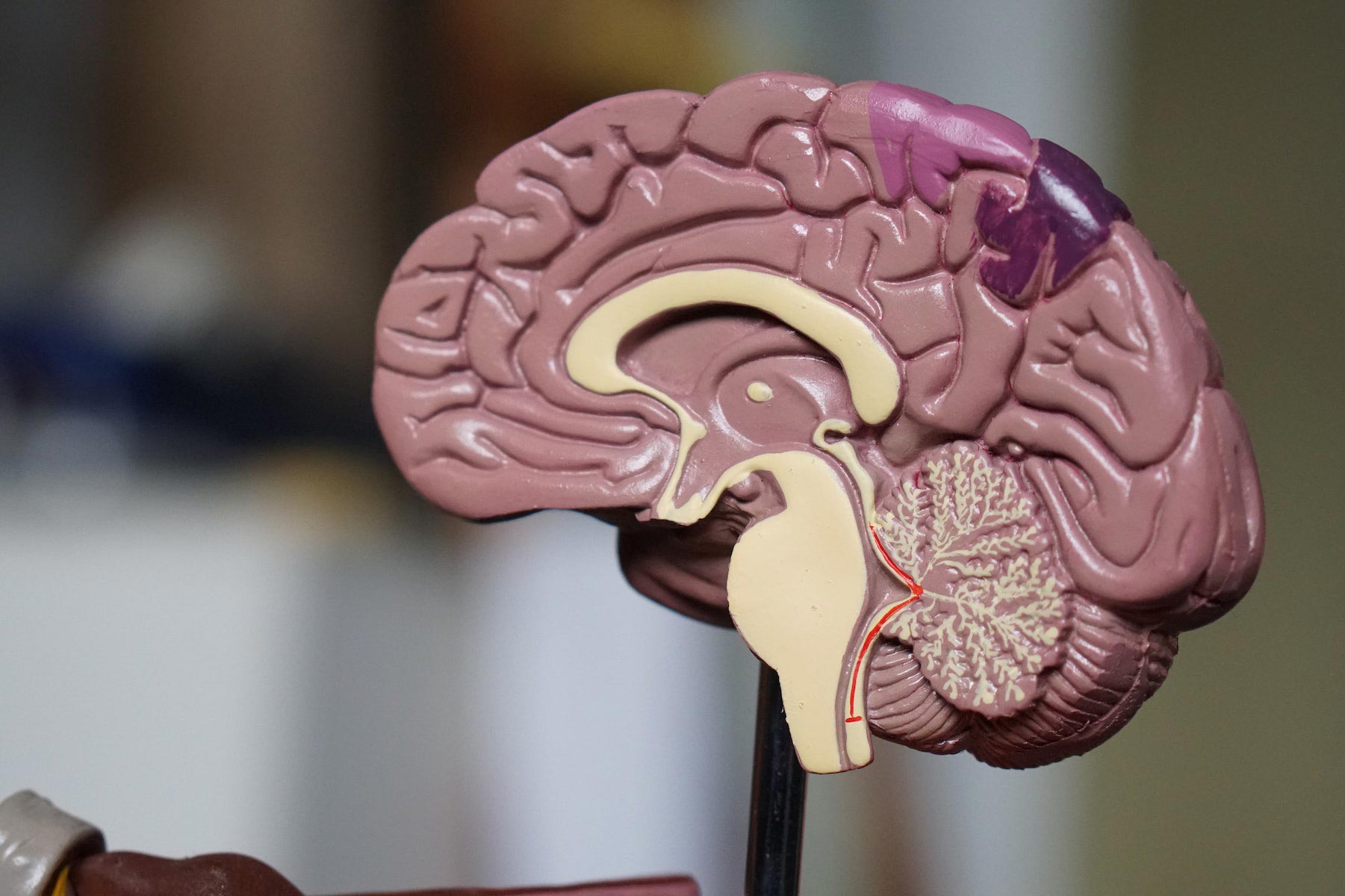Estimated reading time: 10 minutes
Alzheimer’s is a terribly sad disease characterized by deterioration of memory, skills, and thinking ability. It is devastating for individuals and their families, and currently affects around 5.8 million Americans. This number is expected to nearly triple to 14 million by 2060.
Whilst there is no cure, research has shown that lifestyle factors can play a key role in protecting brain health and therefore in Alzheimer’s prevention. This means there is plenty we can do to prevent and slow the onset of cognitive decline through simple lifestyle changes such as diet improvements, exercise, social engagement, less stress, and better sleep.
What Is Alzheimer’s?
Alzheimer’s, a form of dementia, is a progressive brain disorder that slowly degenerates a person’s memory and thinking abilities. Eventually, the simplest tasks become impossible. The majority of people who experience this disease, have late onset Alzheimer’s, which begins to show symptoms at 60-70 years of age. More rarely, people between the ages of 30 and 60 can experience early-onset Alzheimer’s.
What Causes Alzheimer’s?
Physical damage to brain tissue is the main cause of Alzheimer’s. This is largely the loss of connection between neurons (nerve cells) in the brain due to a build-up of specific proteins. This leads to a loss of clear messaging between different parts of the brain and the rest of our body.
Scientists are still not clear on what causes this but it is likely to be a combination of genetic, environmental, and lifestyle factors. Now, we can control two of these for the most part, particularly lifestyle, so there is a lot we can do to reduce our risk of developing Alzheimer’s. Absolutely central are our dietary choices.
Difference Between Dementia And Alzheimer’s
Dementia itself is not a disease, but rather an umbrella term for the processes of losing the ability to think, remember, analyze, and make decisions. These processes are devastating for those affected and are categorically not a normal part of aging, as they are often mistaken to be.
Alzheimer’s is just one disease that fits within the dementia category, and it’s by far the most common, accounting for around 60-70 percent of cases.
Can Alzheimer’s Be Prevented?
Drs. Dean and Ayesha Sherzai are leading neurologists working to understand and prevent Alzheimer’s. Their wonderful book, The Alzheimer’s Solution, explains how the disease can be prevented in up to 90 percent of people, by implementing five lifestyle interventions: exercise regularly, improve sleep, challenge and engage the brain, reduce stress, and eat a plant-based diet.
There Is A Connection Between The Digestive System And The Brain?
Although it is strange to think of our digestive system or gut having influence over our brain, there is a much stronger connection than most people realize. Also known as the ‘enteric nervous system,’ (ENS) our gut shares many neurotransmitters, with our central nervous system (CNS). This can lead to gut health impacting on diseases generally associated with the brain, such as Alzheimer’s.
BEST DIET FOR Alzheimer’s Prevention
So, diet is a key factor in reducing our risk of diseases like Alzheimer’s, but what foods should we be eating? According to the Sherzai’s plan, vegetables, fruits, pulses, grains, and healthy fats are what the brain needs to thrive and ward off neurological diseases. They recommend a fully plant-based diet.
The DASH Diet
Dietary Approaches to Stop Hypertension—the DASH diet—aims to reduce and maintain healthy blood pressure. It focuses on reducing sodium, increasing intake of vegetables, and allowing some consumption of whole grains, poultry, fish, and nuts.
Blood pressure may seem unrelated to cognitive function but the two are actually connected. Midlife high blood pressure has been connected to an increased risk of developing dementia symptoms later in life, although more research is needed to show whether lowering midlife blood pressure can actually lower the incidences of Alzheimer’s.
Mediterranean Diet
This approach is rich in fruits, nuts, vegetables, beans, legumes, grains, fish, and unsaturated fats. Intake of meat, dairy and sugar is very low, so this diet has been linked to good heart health and reduced risk of type 2 diabetes and stroke, as well as death from any cause.
Research has also shown there is a probable link between this diet and reduced cognitive problems.
MIND Diet
The MIND diet incorporates features of both the DASH and Mediterranean diets. It has specific recommended foods: leafy green veg, most other vegetables, nuts, berries, legumes, whole grains, olive oil, “poultry”, seafood and even wine (in moderation).
It also has a “to avoid” list, which includes butter, cheese, red meat, fast foods, and pastries but does it work?
A study that used food questionnaires and brain function tests was able to show that, in participants over the age of 80, those sticking closely to the MIND diet had brains younger by eight years than their counterparts, who didn’t follow the diet.
So, removing the big dietary offenders—red meat, butter, cheese—seems to be key to brain health.
What Foods Prevent Alzheimer’s?
There is no one food that we can point to and say “this prevents Alzheimer’s” but it’s when we combine a wide range of plant-based foods that we get the best outcome. On the Sherzai’s list of “brain-nourishing foods” are:
All kinds of beans – these have been shown to reduce stroke risk, lower cholesterol, and regulate blood glucose.
Berries – by far the most delicious way of keeping our brains safe, Harvard research shows they can lower the risk of cognitive decline.
Coffee – perhaps the best news to be found here, caffeine can help stimulate protective neurochemicals in the brain such as acetylcholine. As much as this may tempt us to hit the coffee machine all through the day, it is important to avoid caffeine in the afternoons, to ensure we get the all important restorative sleep we need to further stave off cognitive decline.
Quinoa – this supergrain contains fibre, zinc, vitamin E, phosphorus, and selenium, whilst also being a great source of protein. These are all great for building brain cells!
Other foods we should include in our brain-healthy diets are:
- Leafy green veg (kale, spinach, mustard greens, collards, and more)
- Nuts
- Olive oil
- Seeds
- Spices
- Dark chocolate
For a more detailed lowdown on how each of these foods can contribute to Alzheimer’s prevention head here.
Foods to Avoid
With the good, there unfortunately has to be some bad, so which foods are more of a brain drain than brain gain?
Trans fats, saturated fats, salt and calorie-dense processed foods are the key enemies here.
Saturated Fats – almost all meat and dairy products, along with processed products like pastries, cookies, and cakes, contain high levels of saturated fat. A 2018 meta-analysis discovered that higher intake of dietary saturated fats led to a 39 percent increase in Alzheimer’s risk. So, a vegan diet that avoids all these products is the way to go.
Red and Processed Meats – if their contribution to causing cancer isn’t bad enough, meats like sausages, bacon, pepperoni, and chorizo contain preservatives, saturated fats, and high levels of salt. These cause inflammation and can damage blood vessels in our brains.
Fried or Fast Food – full of trans fats, these foods are to be avoided to reduce our Alzheimer’s risk. Research has found they can be incorporated into the brain cell membranes and alter our neurons’ ability to communicate. This has led to researchers discovering a link between trans fats and depression, as well as growing evidence for their role in Alzheimer’s.
Cheese – Drs. Sherzai identify cheese in their top 10 foods to avoid, as it is often high in both saturated fats and salt.
Salt – due to its well-established link to high blood pressure, salt has been identified as a key risk factor for Alzheimer’s. Newer studies have shown that salt could increase levels of tau protein in our brains and build-up of this protein is a key element of Alzheimer’s.
Other things off the table are:
- Excess alcohol
- Sweets and desserts
- Most high-calorie foods (fast and processed food)
What Else Can I Do To Prevent Alzheimer’s Disease?
Drs. Sherzai’s 5 strands of Alzheimer’s prevention give us an excellent starting point and identify lifestyle changes we can all make.
They even highlight that implementing just one of the following additions can reduce your Alzheimer’s risk, but when applied all together can reduce your risk by up to 90 percent!
Healthy Diet
As established above, a diet rich in fruits, vegetables, and grains, and low in saturated fats, trans fats, and salt is going to give us the best chance of preventing Alzheimer’s. The best way to achieve this is though a plant-based vegan diet that is rich in specific Alzheimer’s prevention foods, such as leafy greens, beans, berries, and nuts.
Our brains need healthy fats and antioxidants to thrive, and a diet heavy on meat, dairy, and processed foods is never going to give us those.
Mental Stimulation
Use or lose it, the saying goes. And this is certainly true of our brains. We can stimulate our grey matter with games and puzzles, by enrolling in a new course, learning a new skill, or taking up a new hobby. But challenging the brain is key to keeping it healthy.
Quality Sleep
The importance of sleep cannot be understated when it comes to cognitive health. Sleep is our body regenerating and recharging, so it makes sense that without sufficient rest, our brains will suffer over time.
Avoiding alcohol is another key factor in achieving good quality sleep, and we would do well to avoid screens before bed. Meditation is also an excellent way of increasing the quality of your rest, particularly if practised before bedtime.
Regular Physical Exercise
Regular exercise is a pillar of a healthy lifestyle and is also central to healthy cognitive function. Research shows that exercise reduces oxidative stress and inflammation, thereby helping our brains stay healthy.
Social Engagement
There is a clear link between higher levels of social engagement, particularly in the older population and a reduced risk of dementia.
By spending quality time with family and friends, or even having a simple positive interaction with a stranger, we are protecting and promoting brain cell function, and helping to build important grey matter in the brain.
Stress Management
Stress equals inflammation for the human body, including the brain. Inflammation can cause structural damage and negatively impact our body’s ability to clear harmful toxins and waste products.
Practising meditation, mindful breathing, journaling, even a quick dance around the kitchen, alongside other natural stress remedies, can be very effective ways of reducing daily stress.
Vascular Health
Vascular health encompasses a variety of factors but most commonly, blood pressure. By maintaining a healthy blood pressure, we reduce our risk of cognitive injuries including dementia.
Lifestyle aspects, such as healthy diet and exercise, are direct factors in blood pressure control, so managing our salt intake and being cardiovascularly healthy are absolutely key.
What’s New In The Fight Against Alzheimer’s?
Research into new Alzheimer’s treatments has been slow in the last 15 years, although new treatments and innovations are appearing. Treatment, whilst absolutely key, is only half the battle. Dementia is not a normal part of aging, so future focus should surely be on prevention methods, rather than treatment, and positive lifestyle choices are still the most influential factor in Alzheimer’s prevention.
Conclusion
Alzheimer’s is a heartbreaking disease that is rarely part of the normal aging process, and whilst there is no cure, lifestyle choices are our best tool when it comes to prevention. By maximizing the positive benefits we can get from diet, exercise, sleep, social engagement, and stress management, we give our brains the best chance of fighting off cognitive decline.
Diet is absolutely central, and a plant-based vegan diet provides all the healthy fats and antioxidants a healthy brain needs. If you haven’t made the switch yet, it’s never too late and our 31 day vegan challenge is a great helping hand to guide you along the road to a healthier diet, and a healthier brain!







